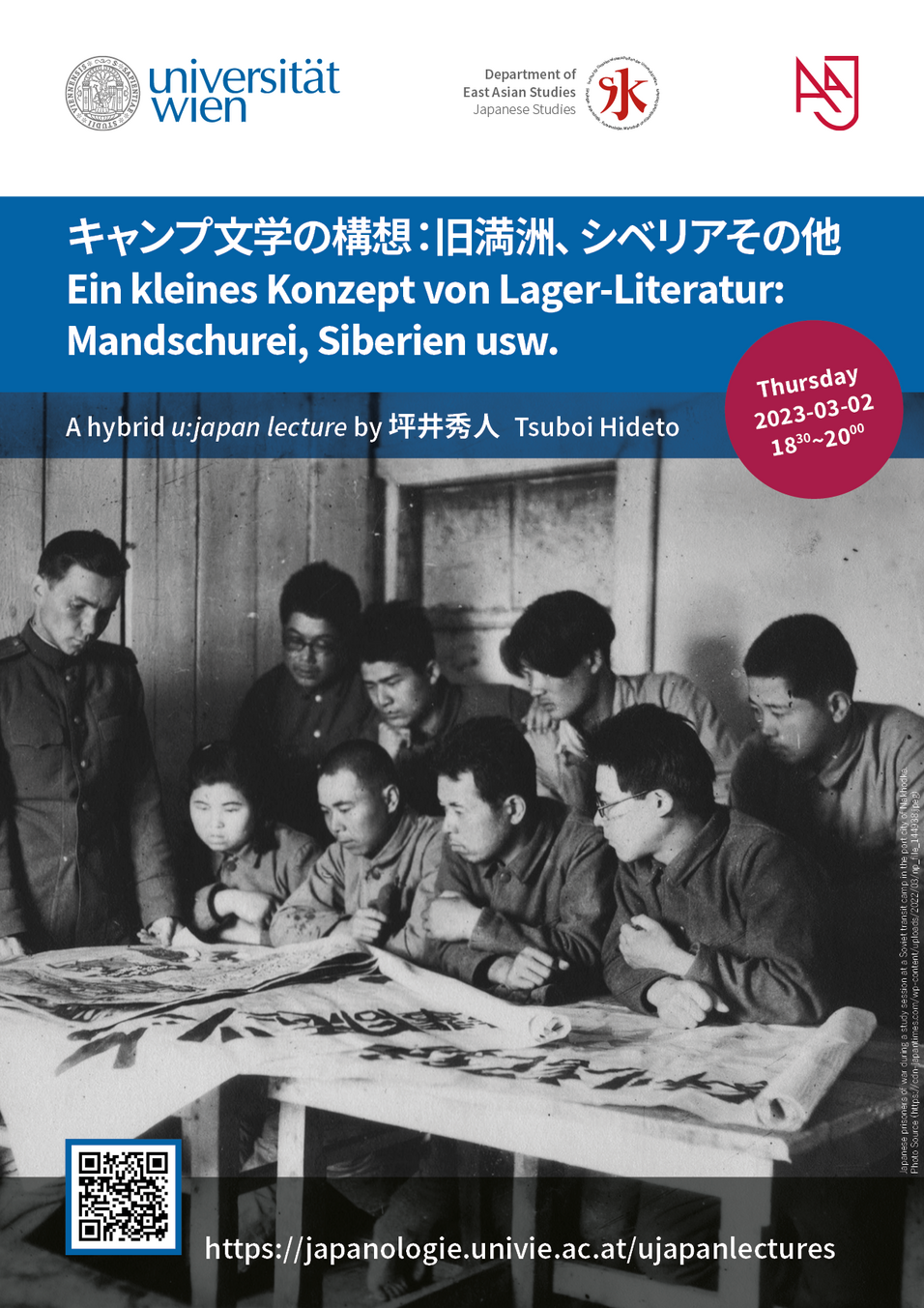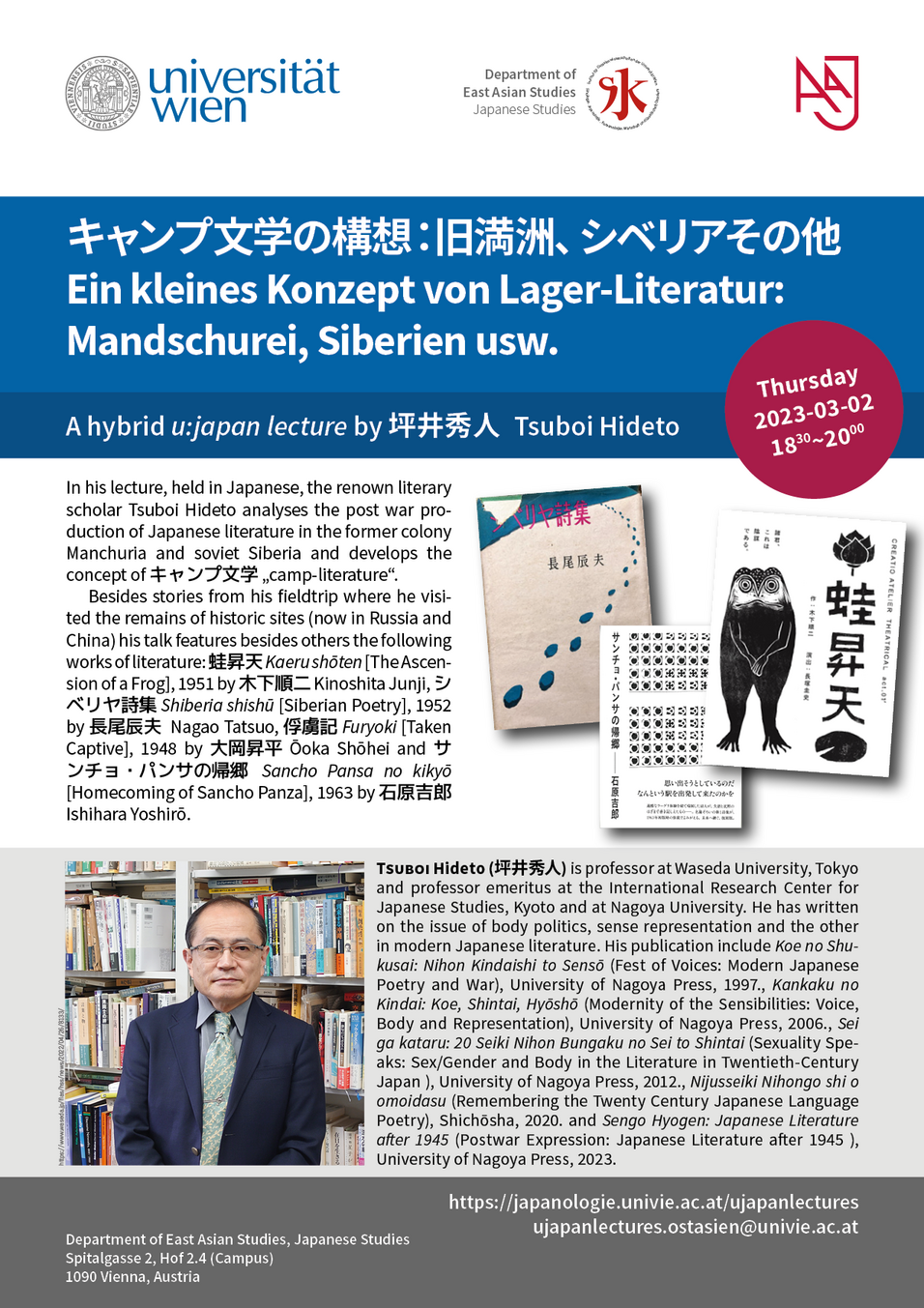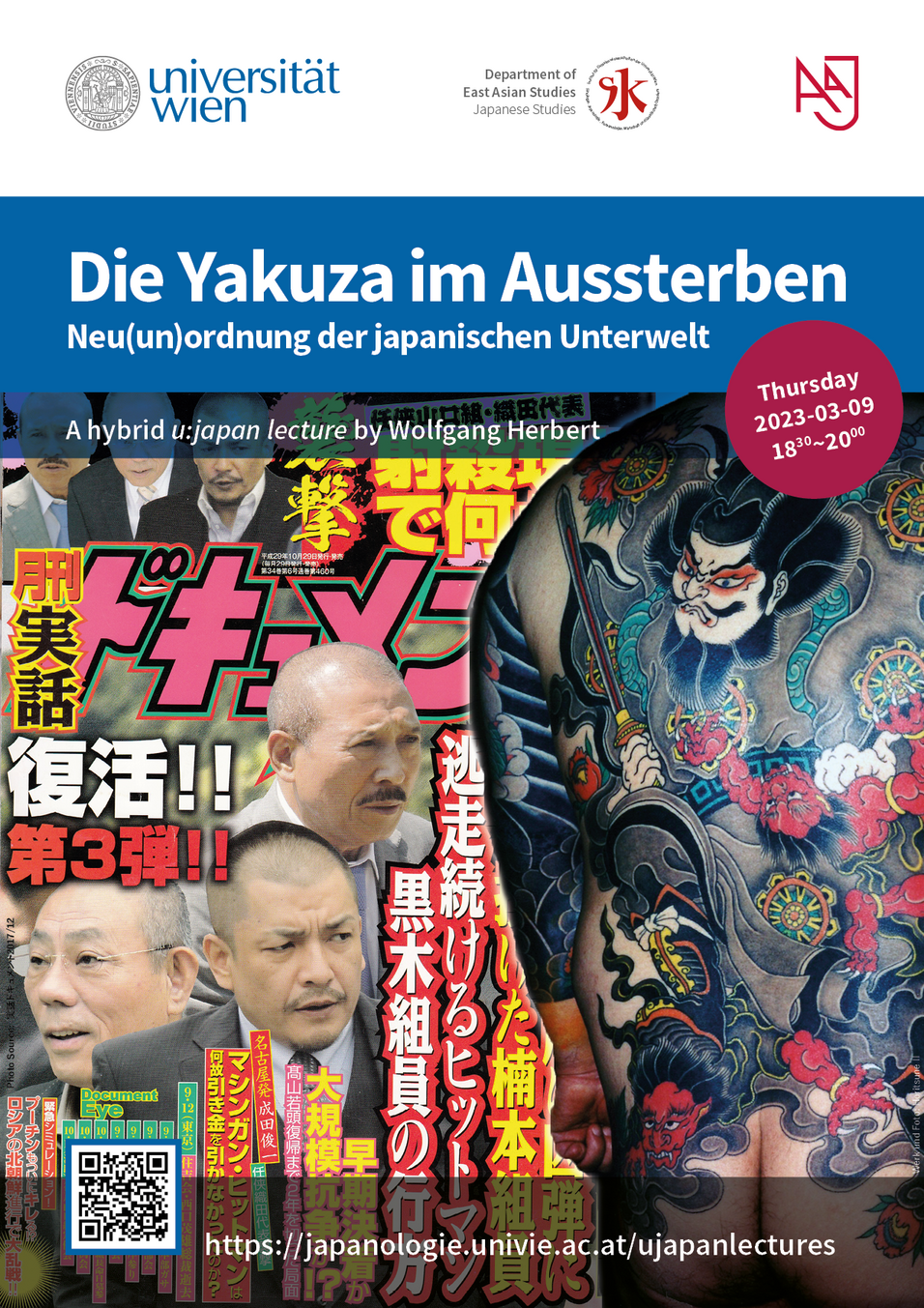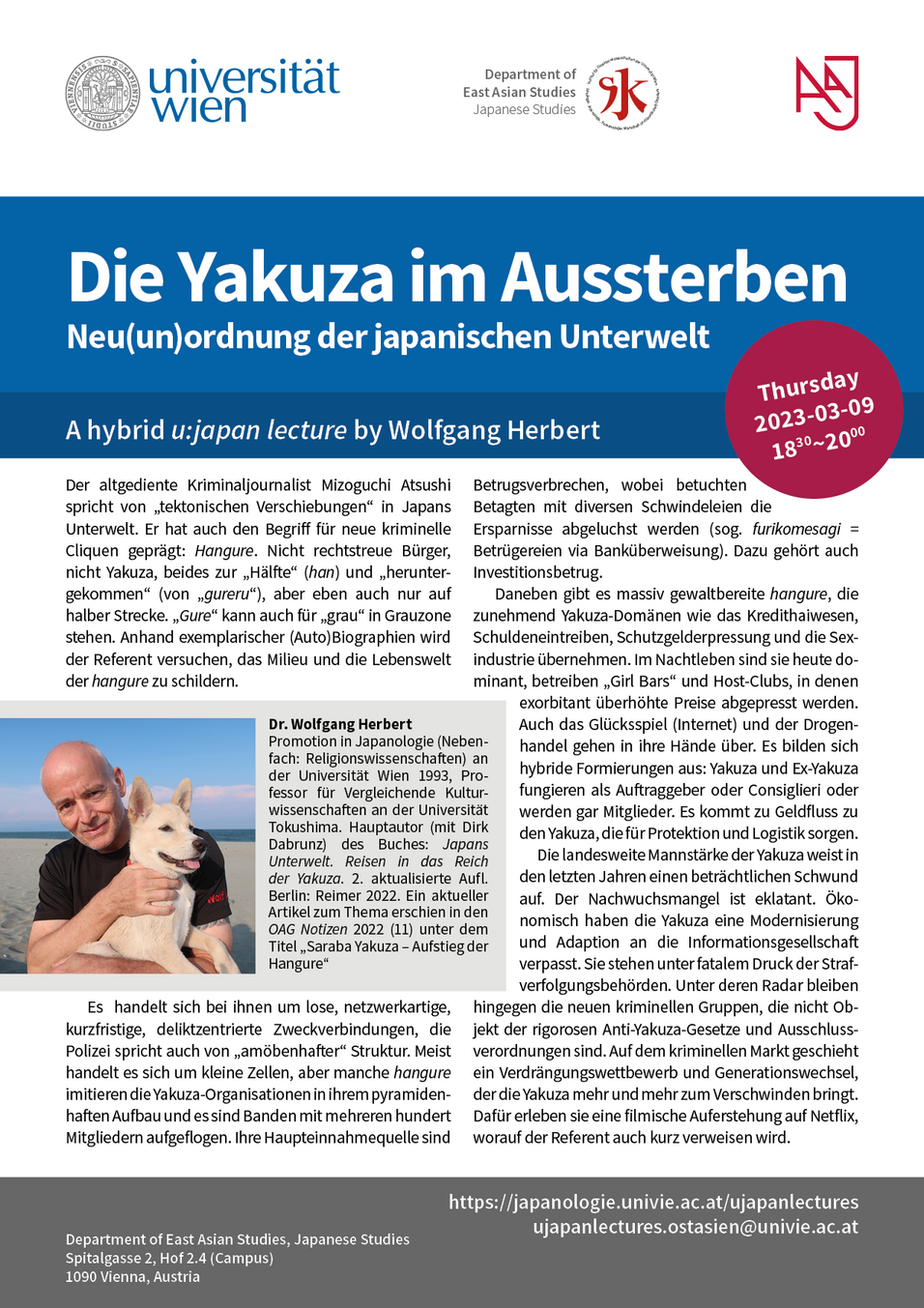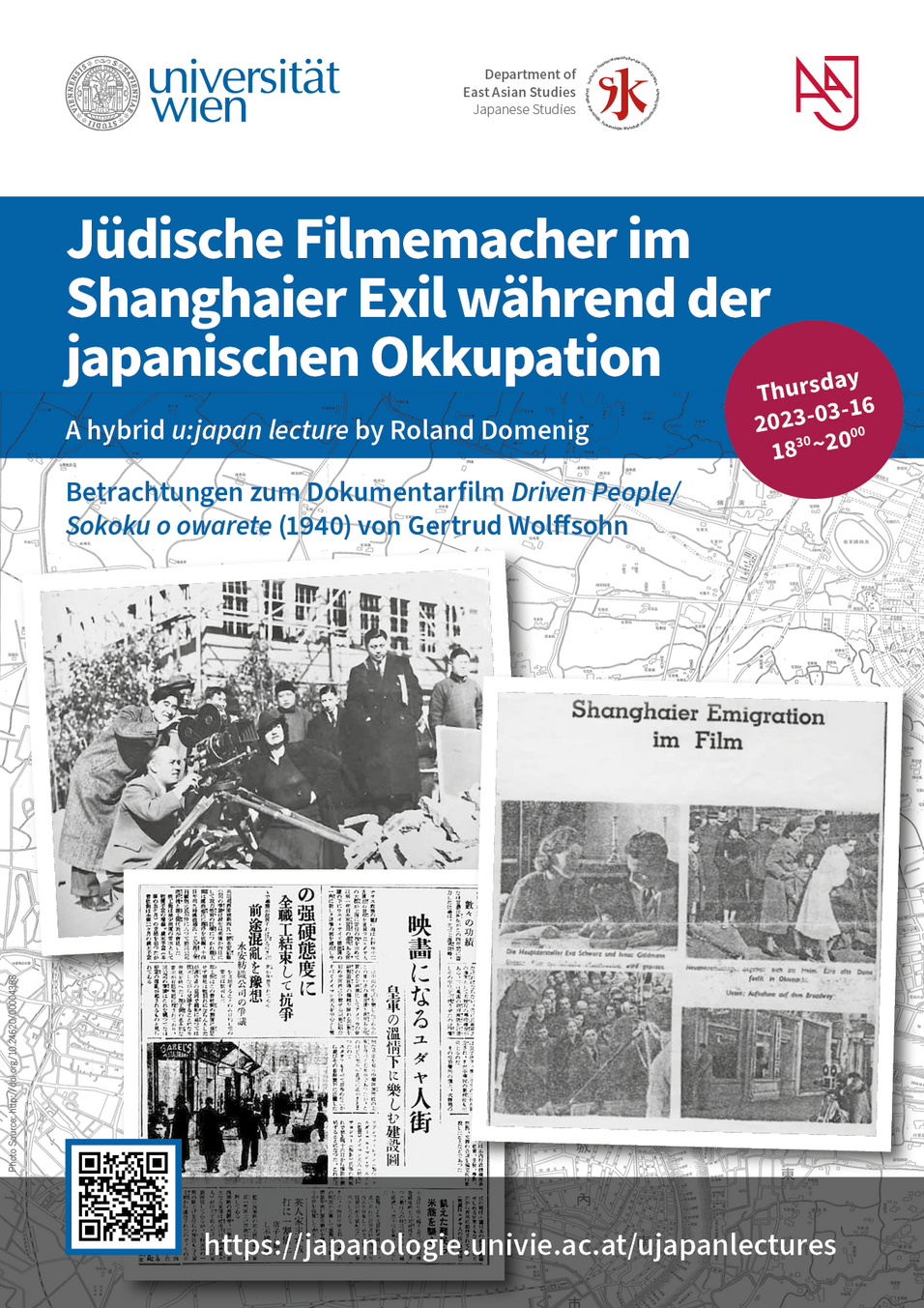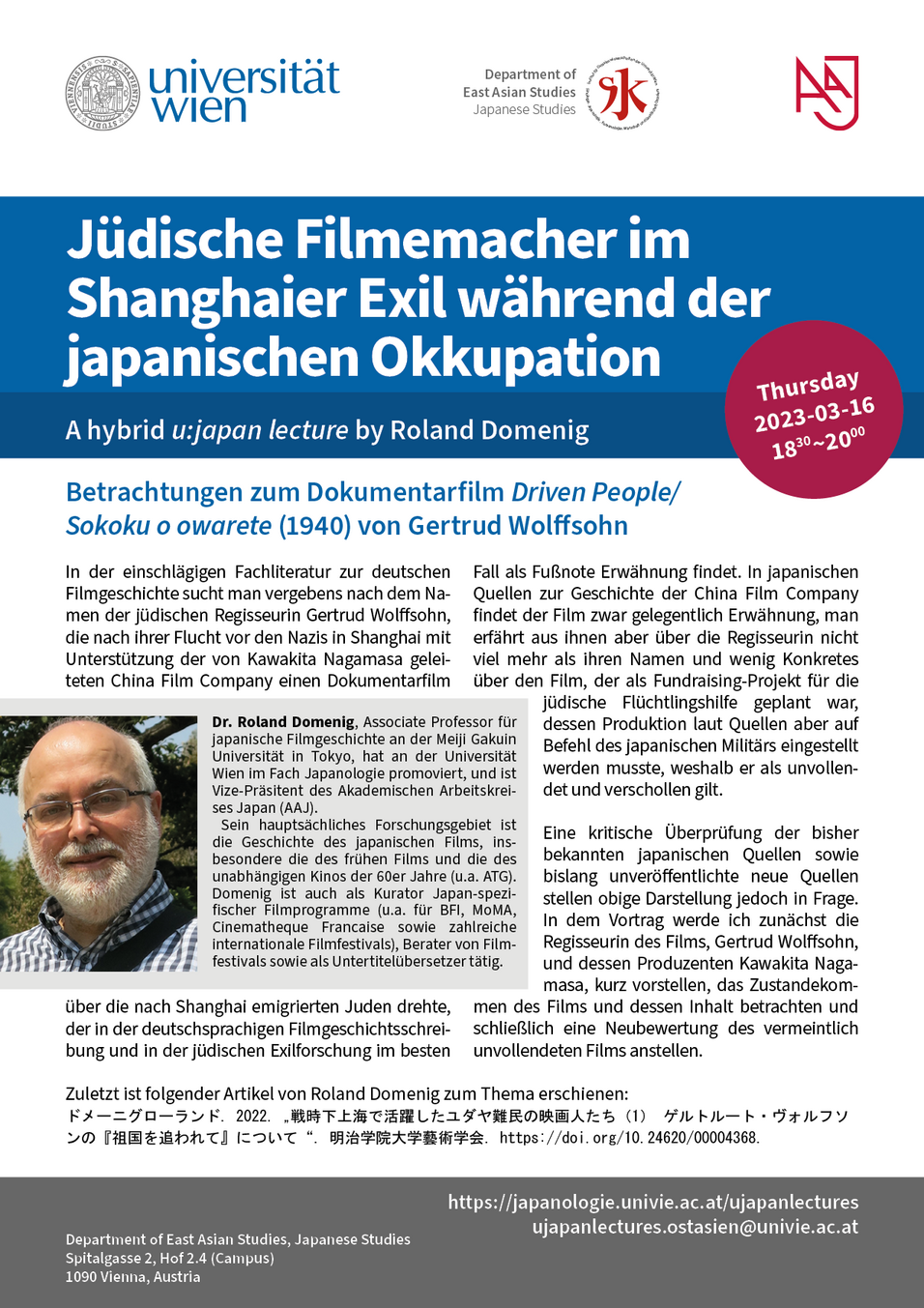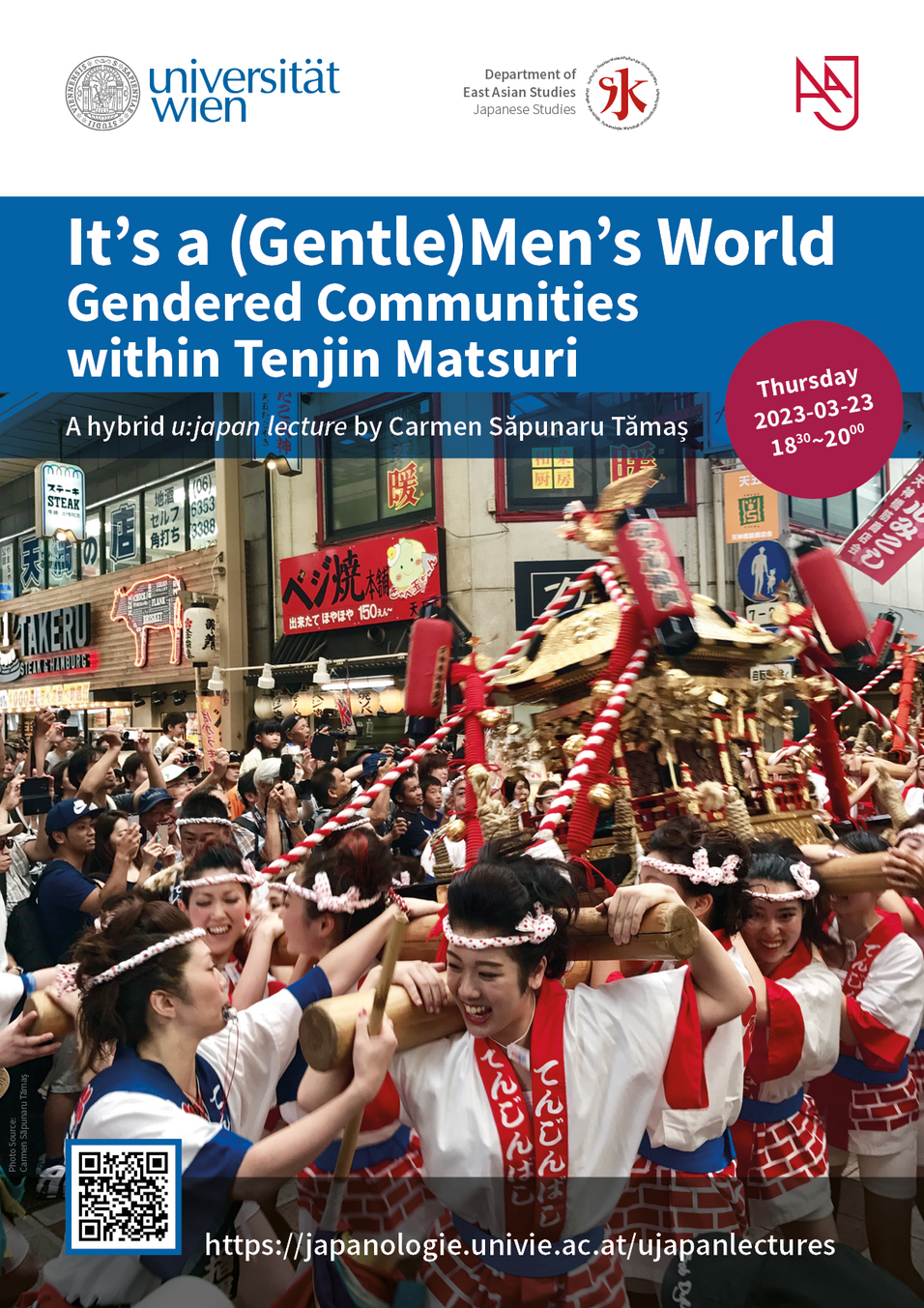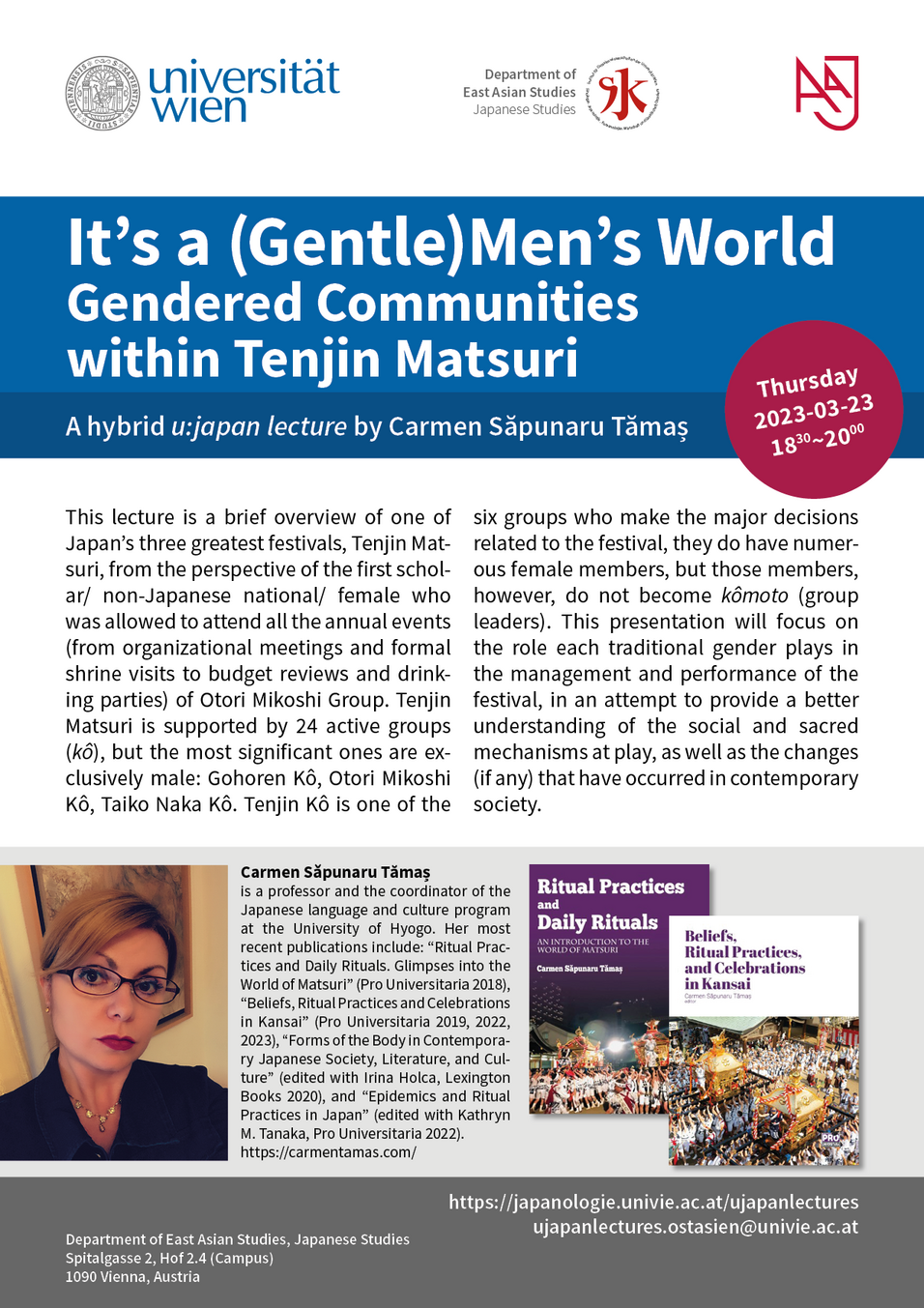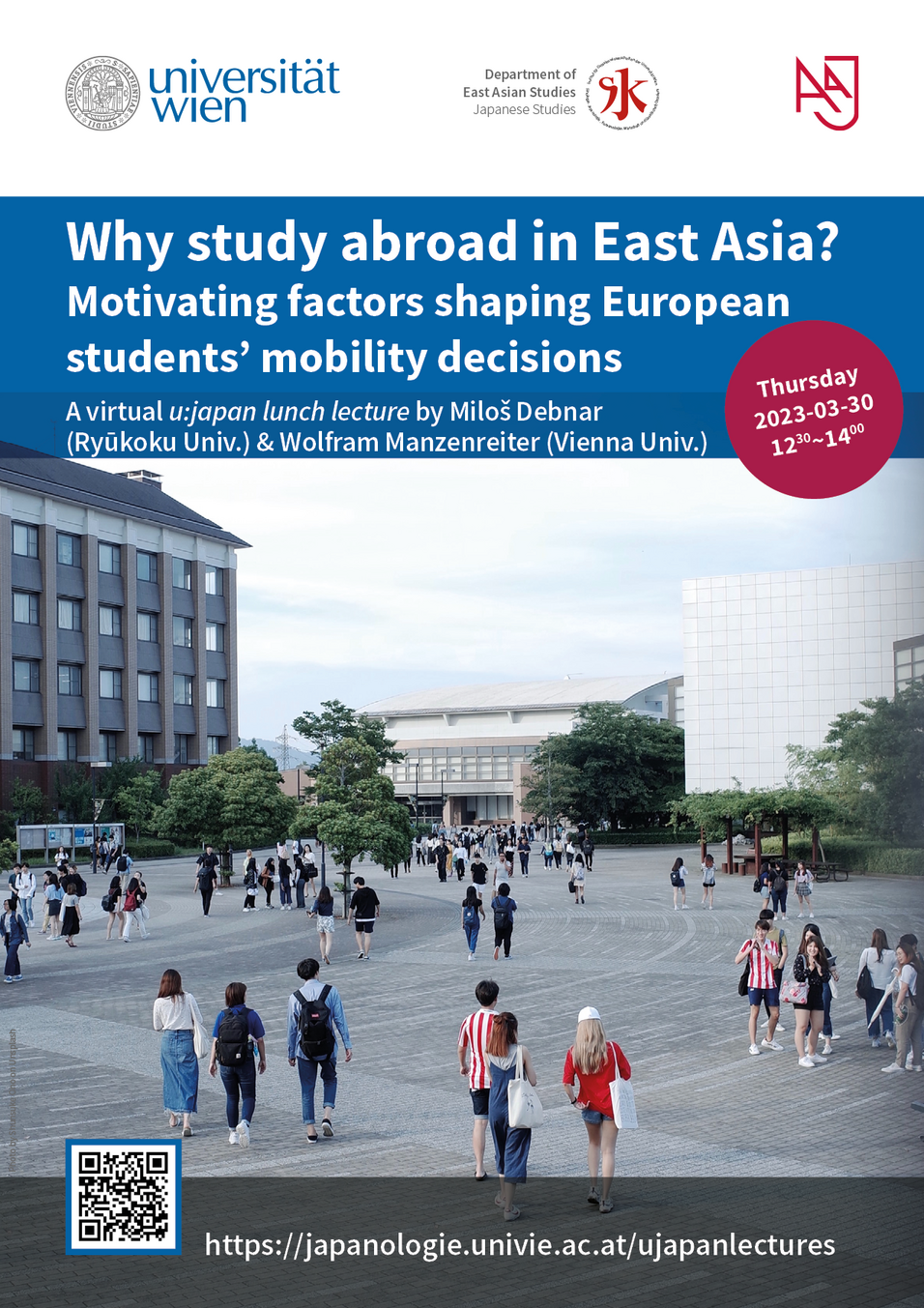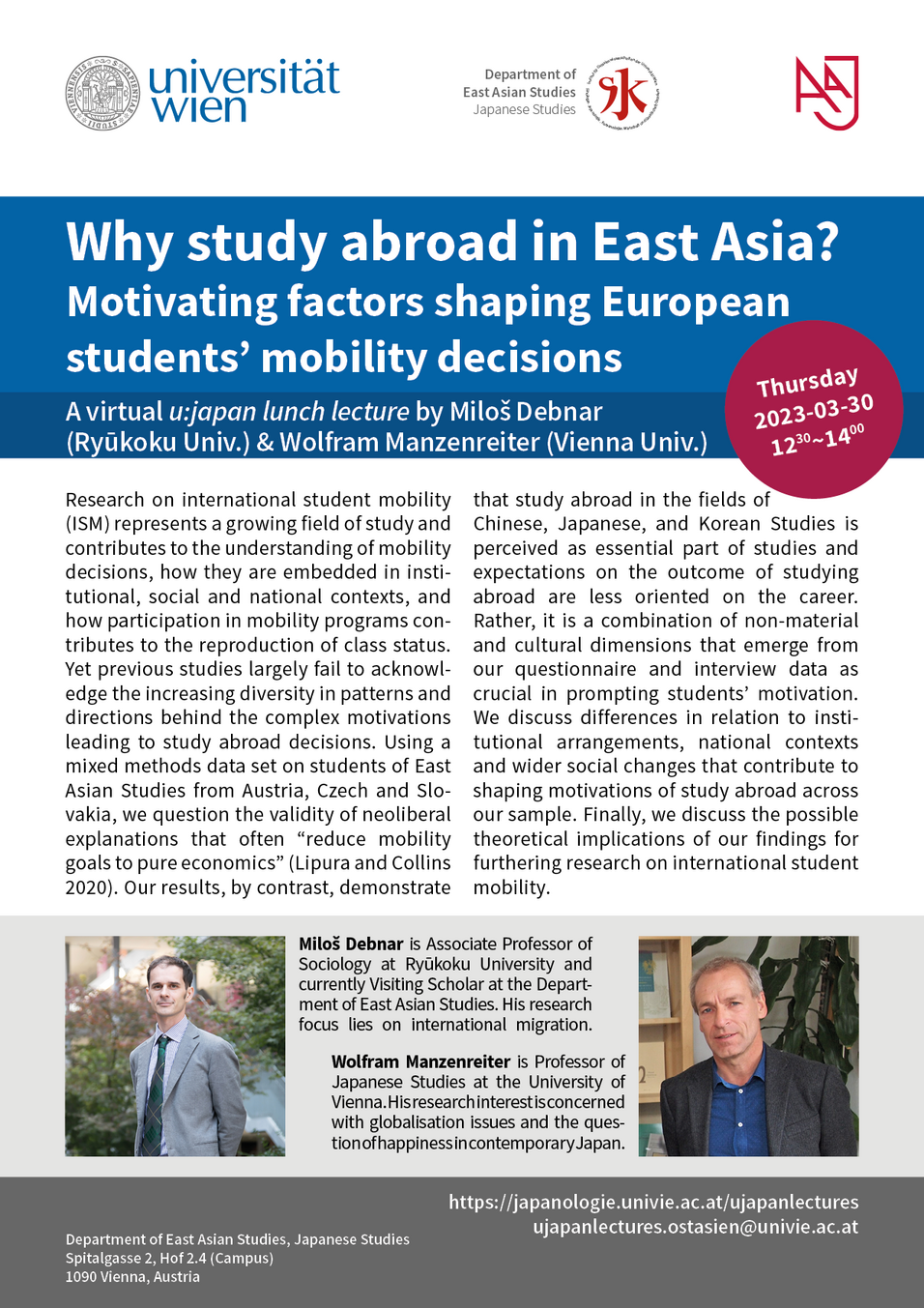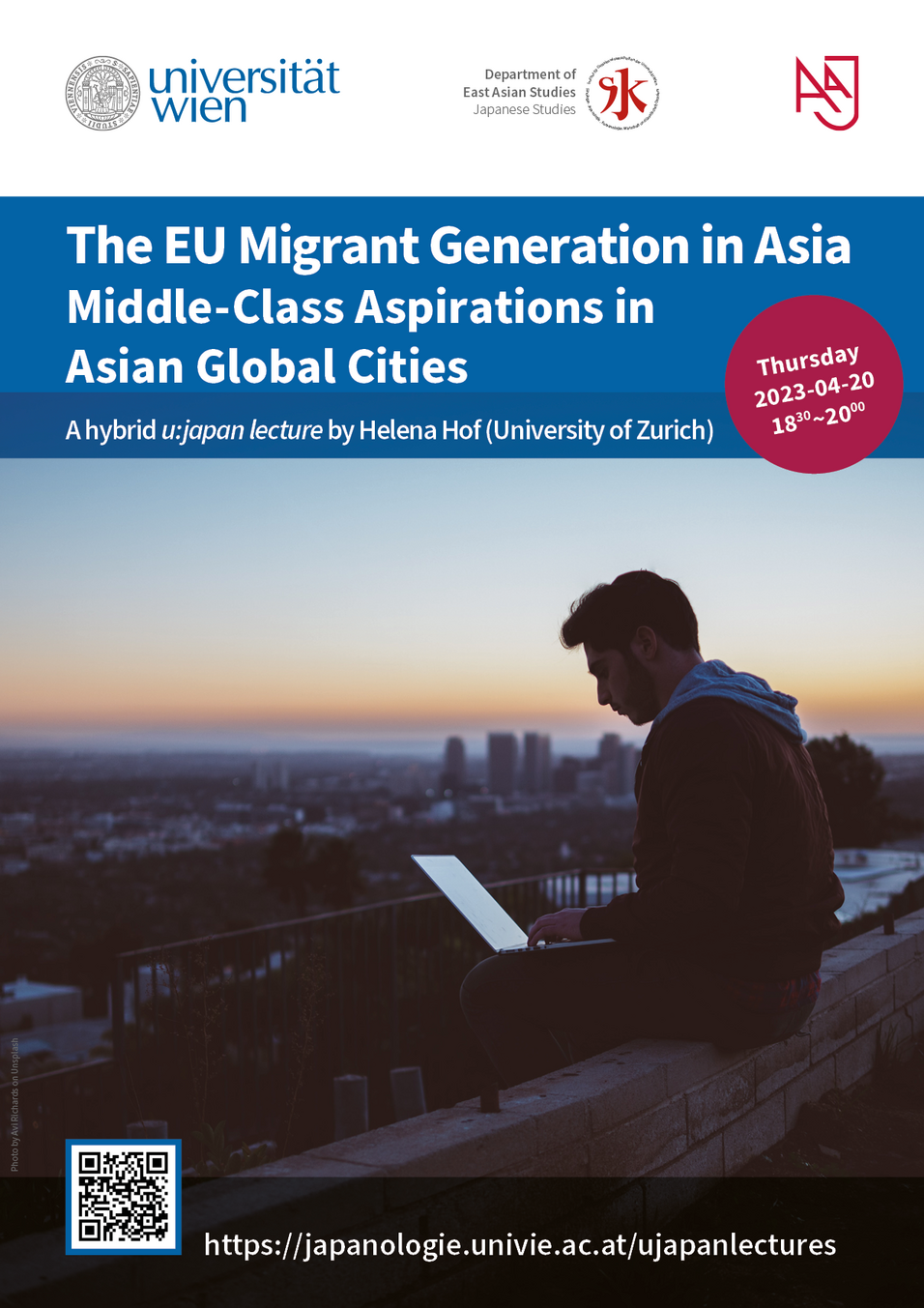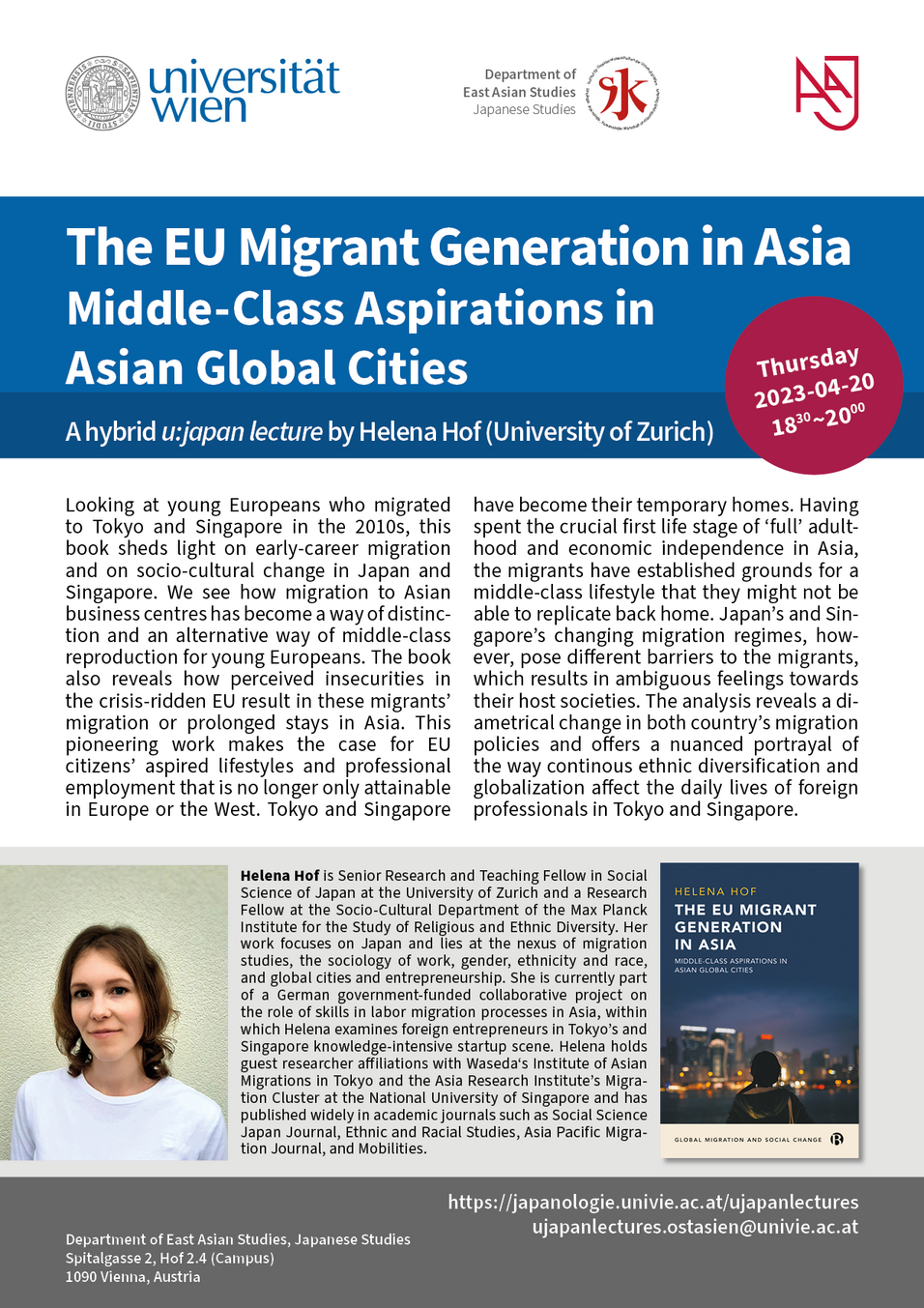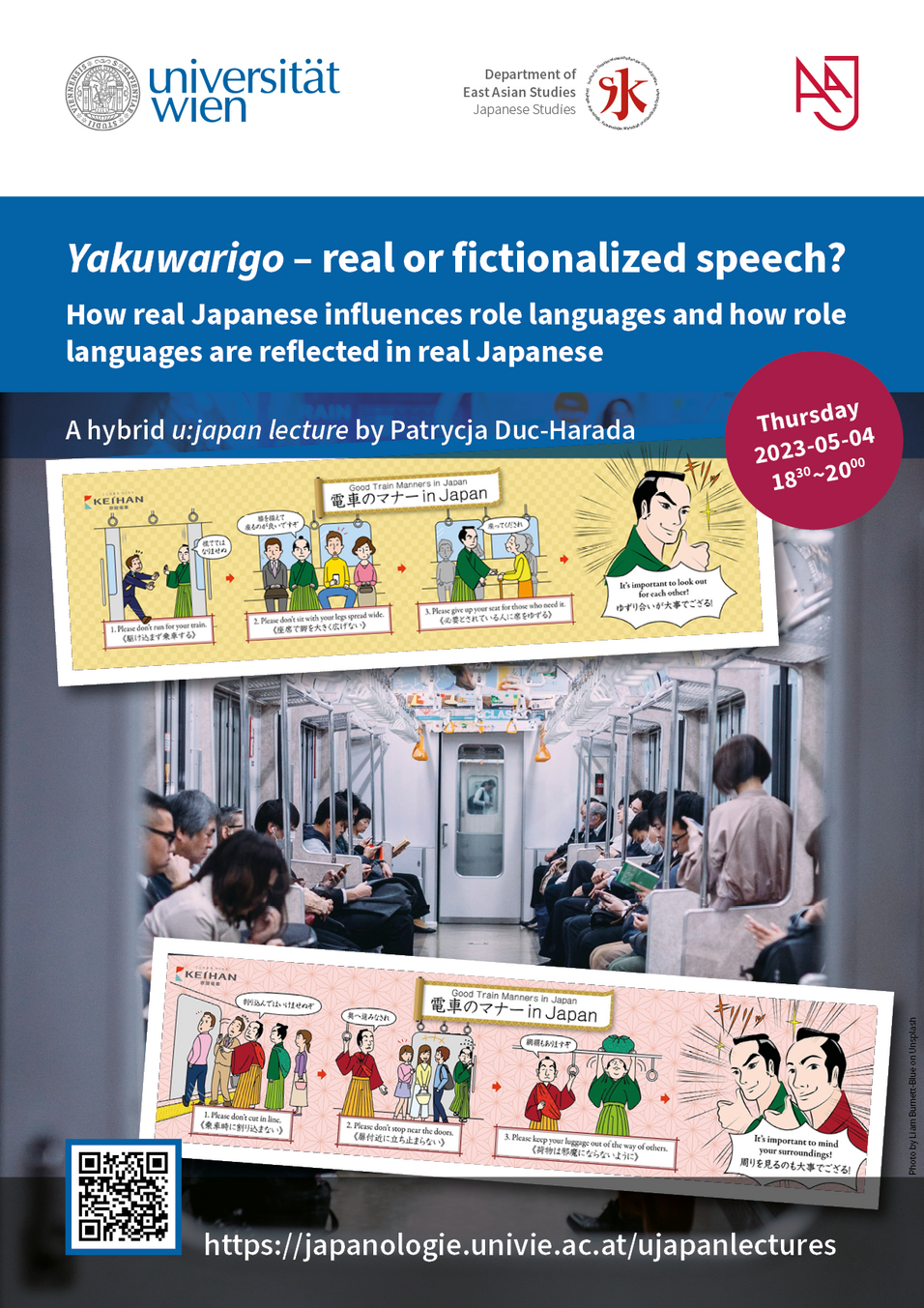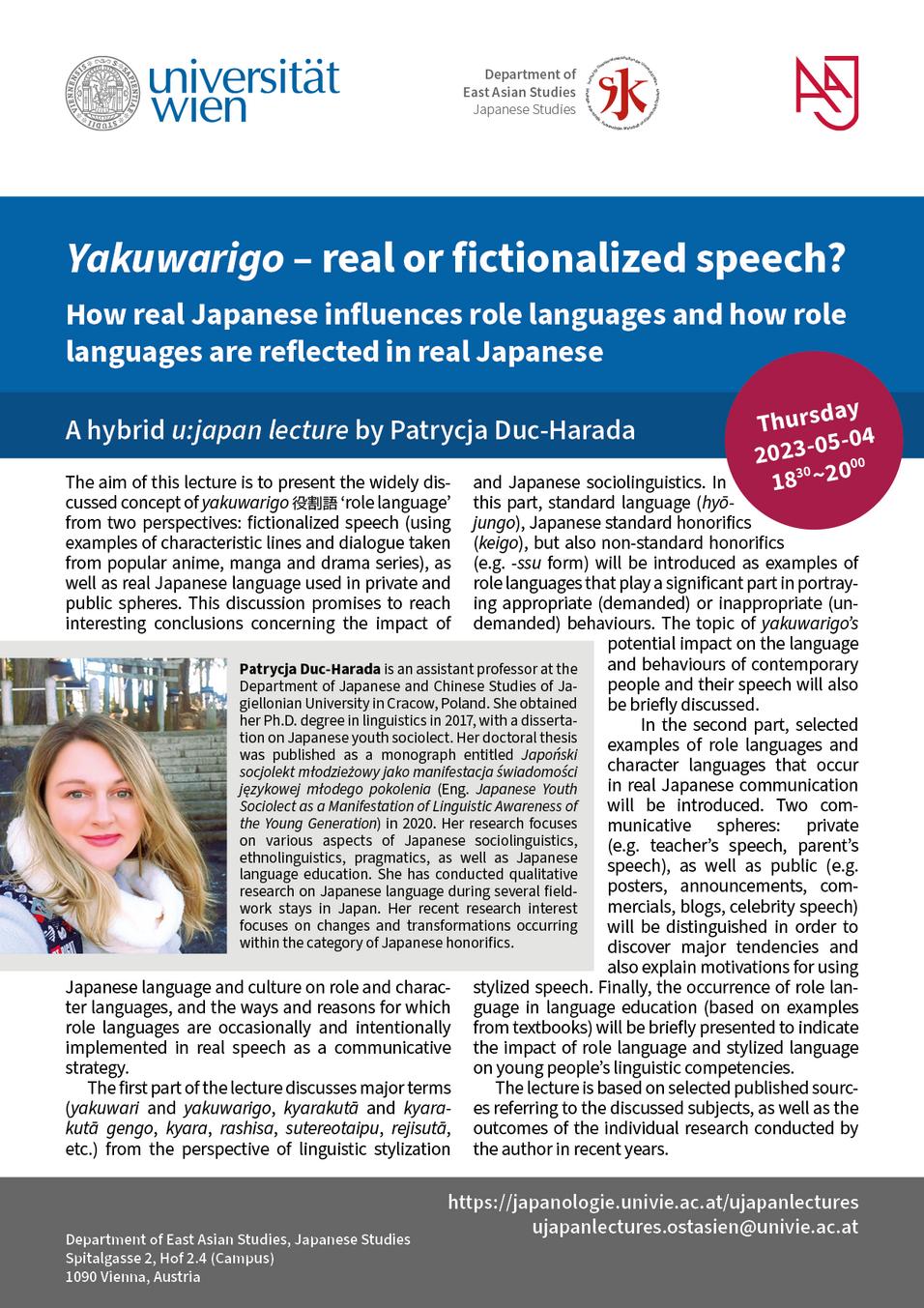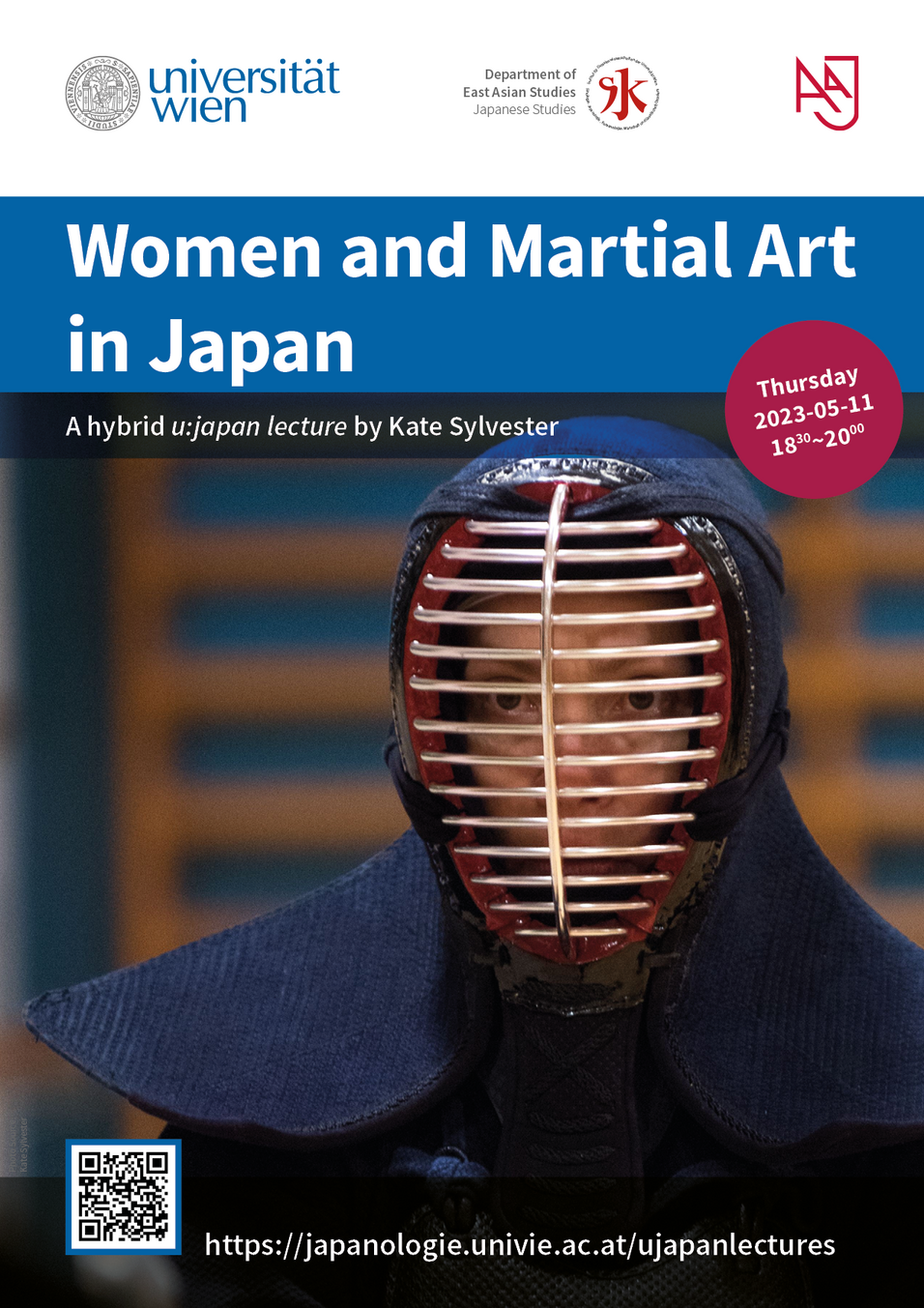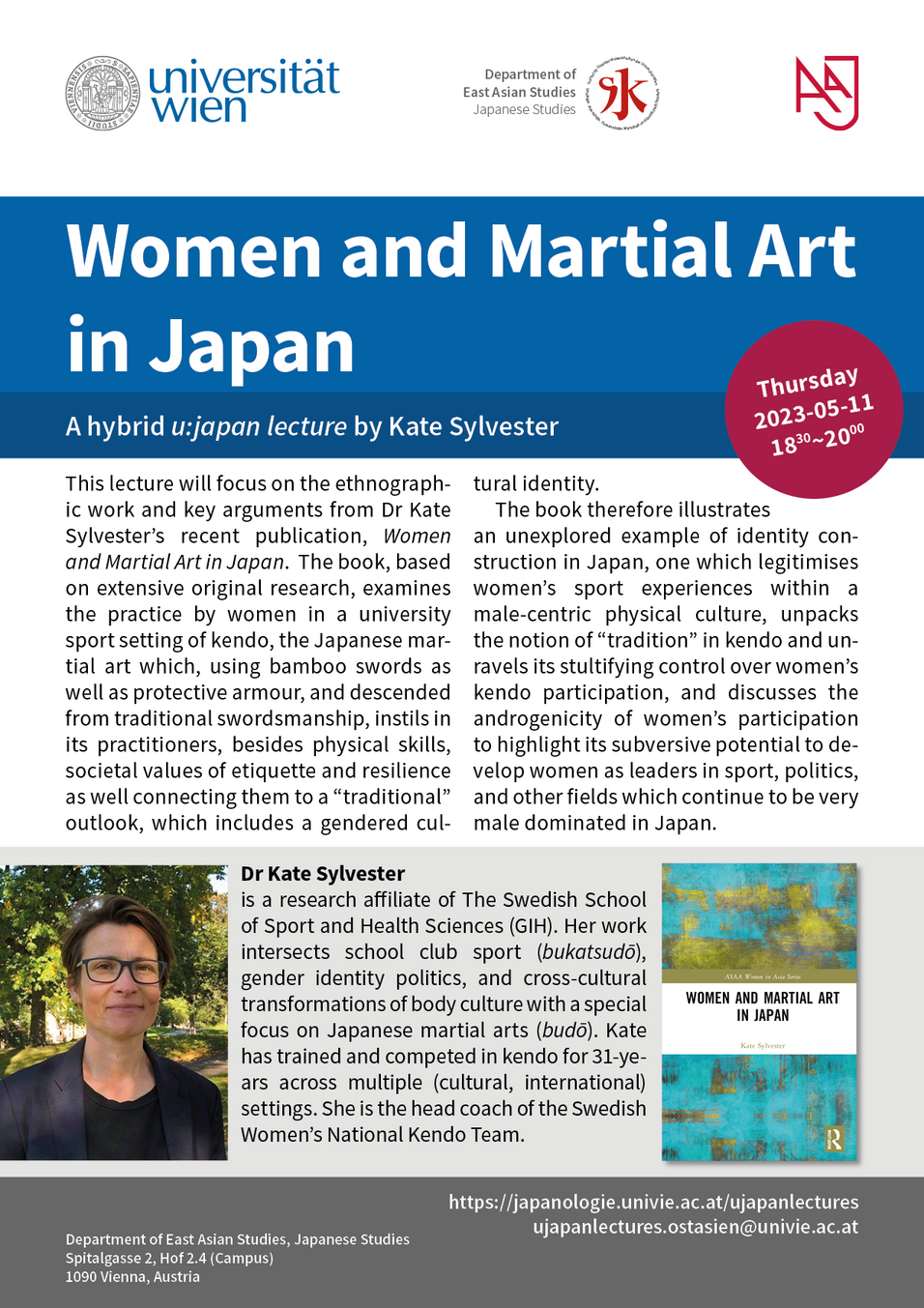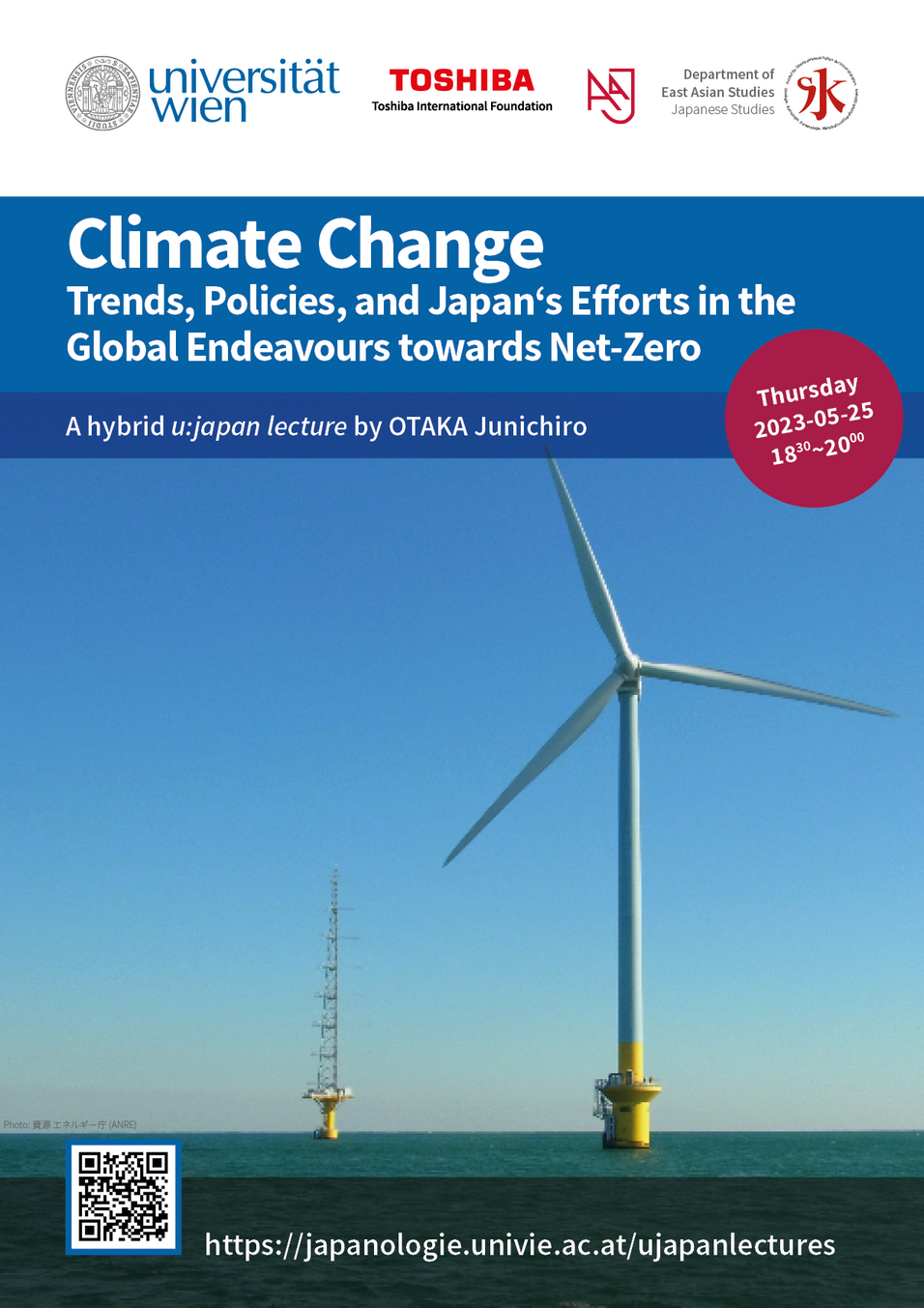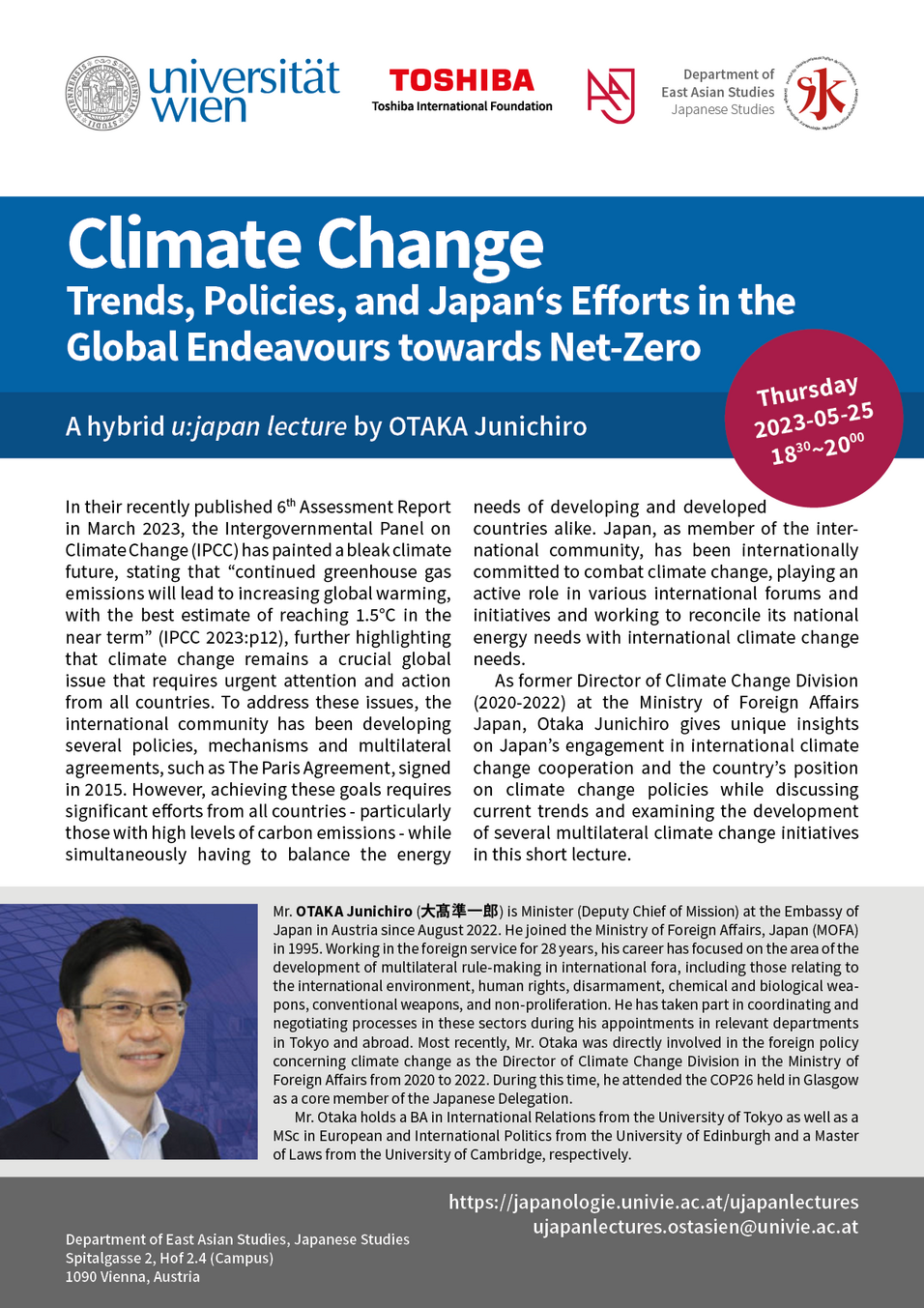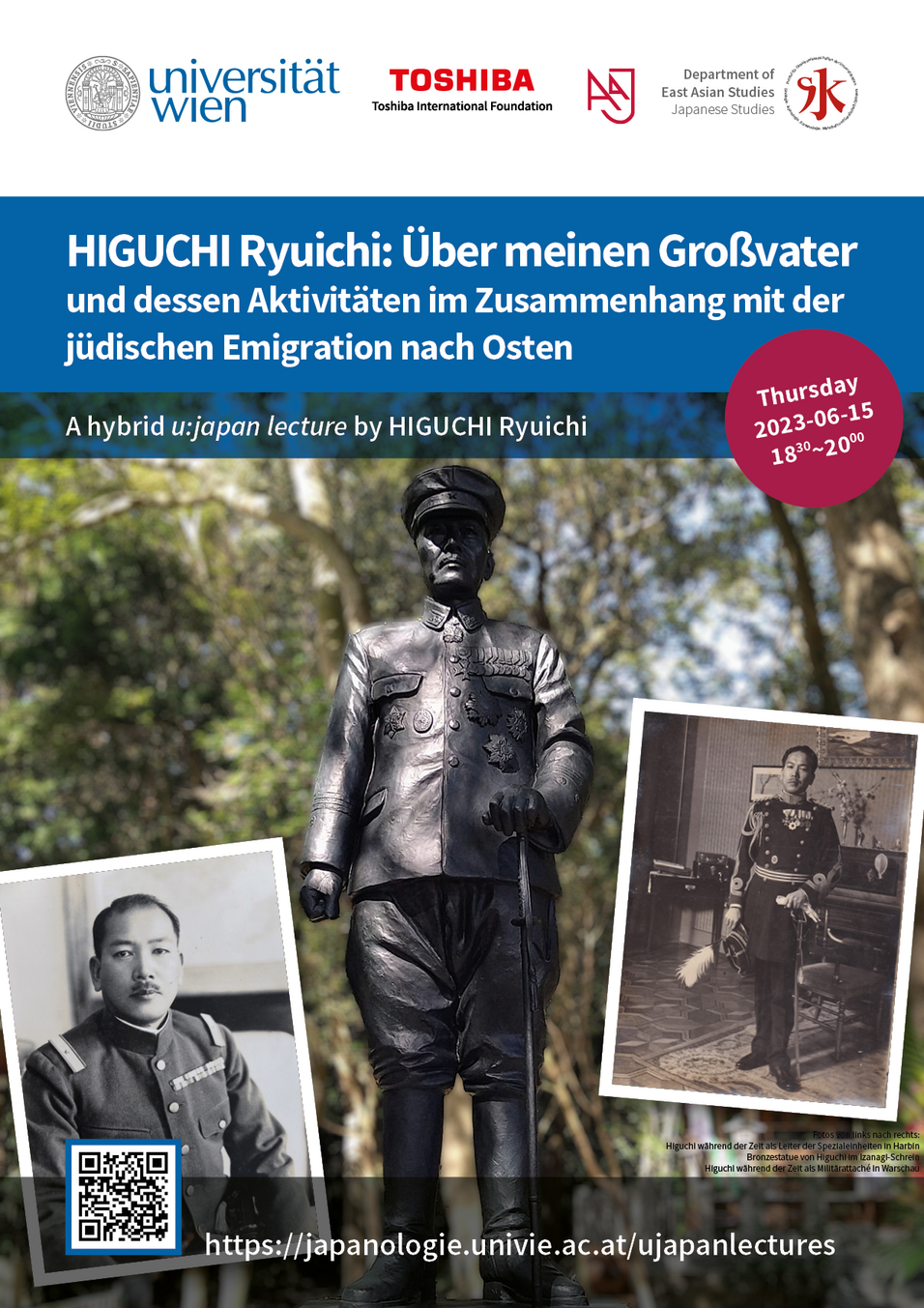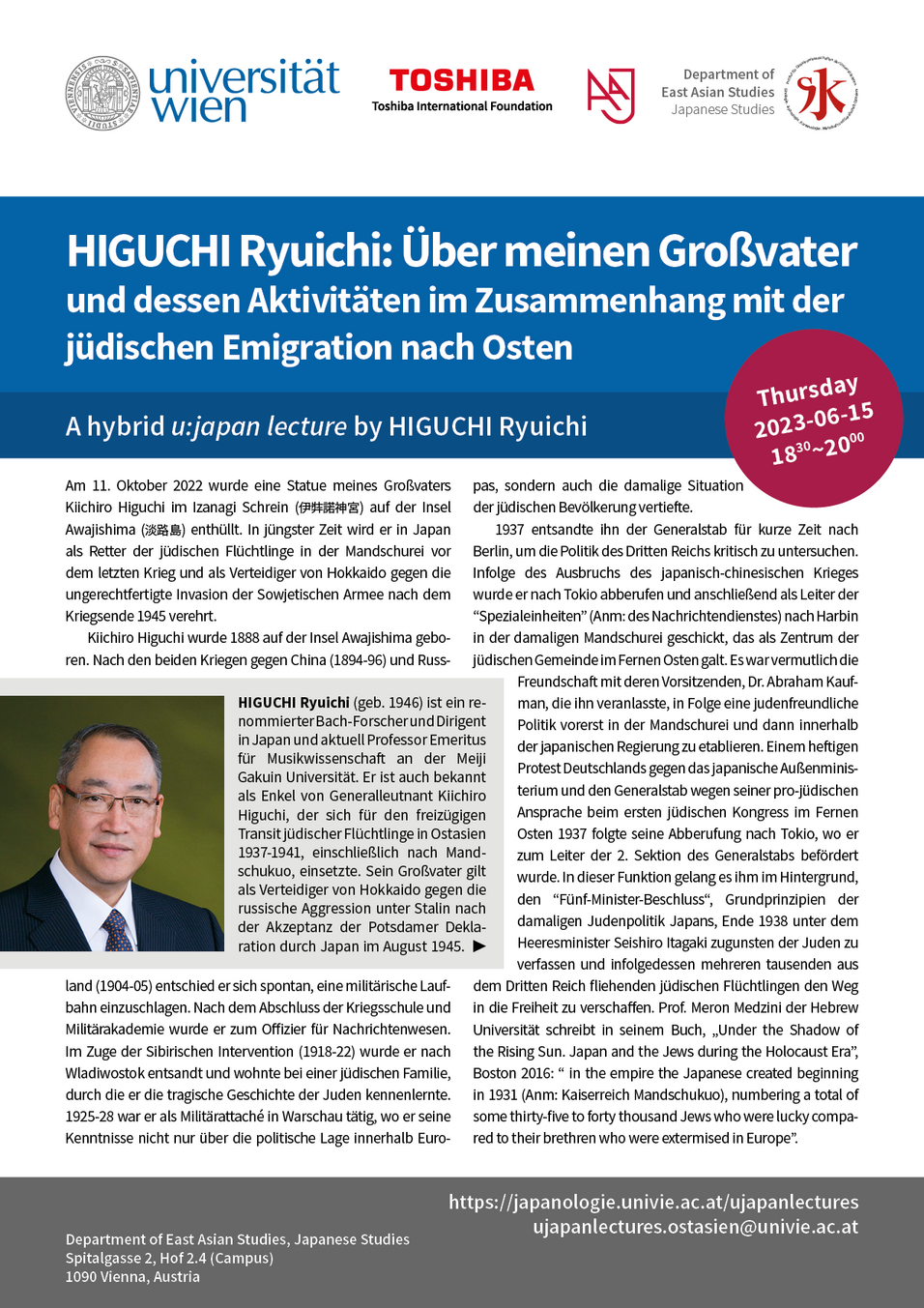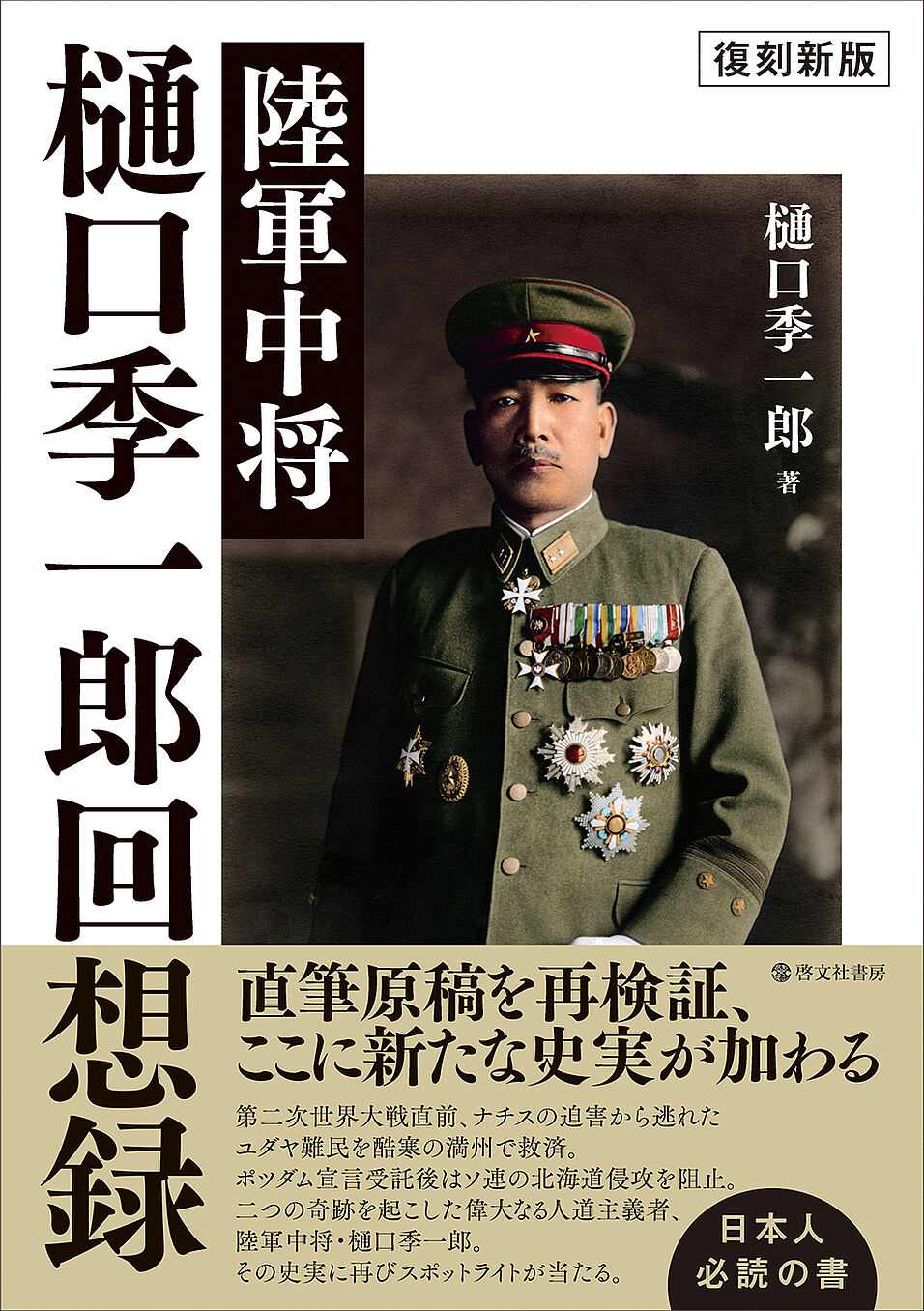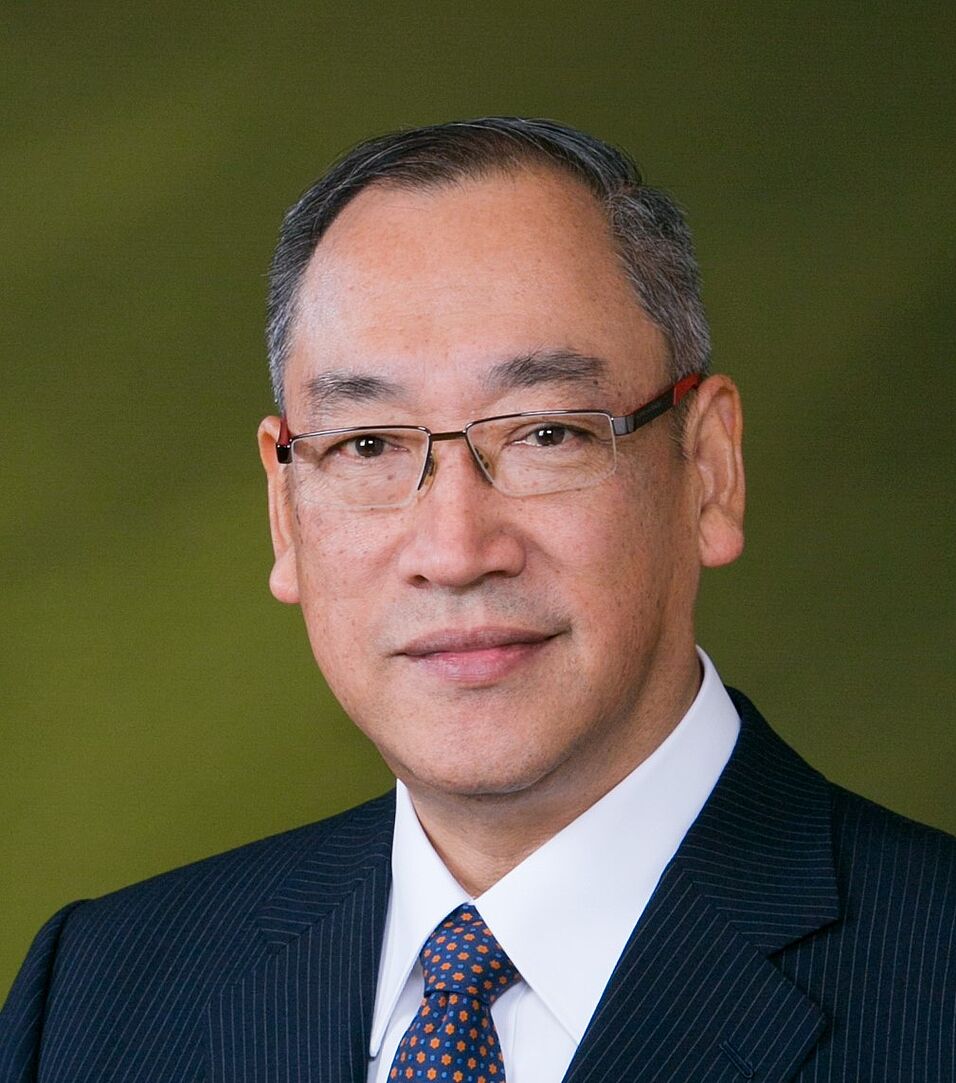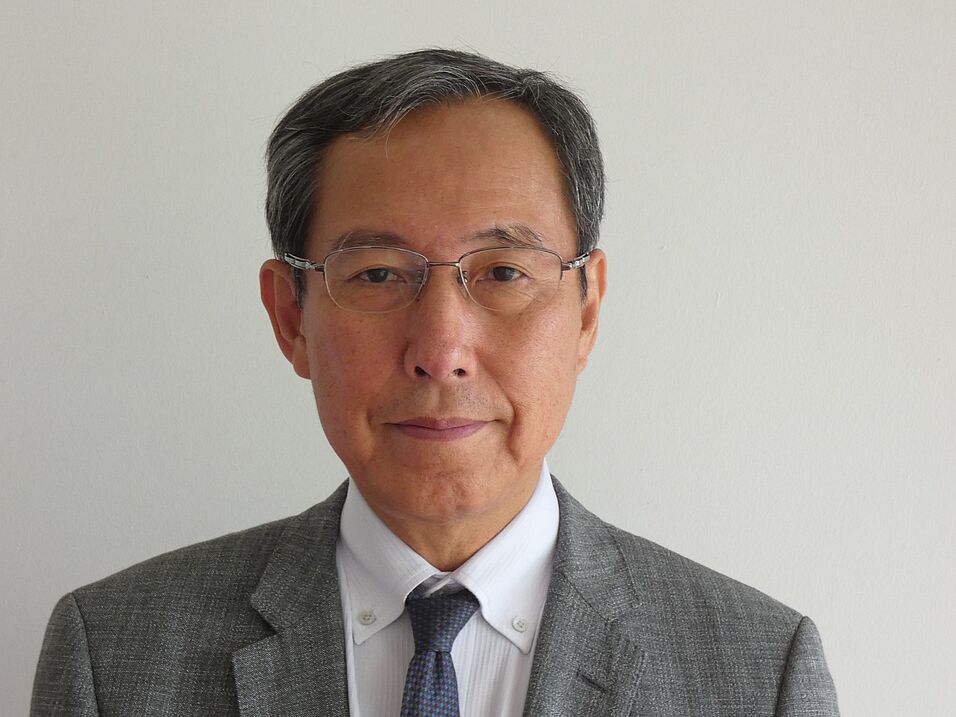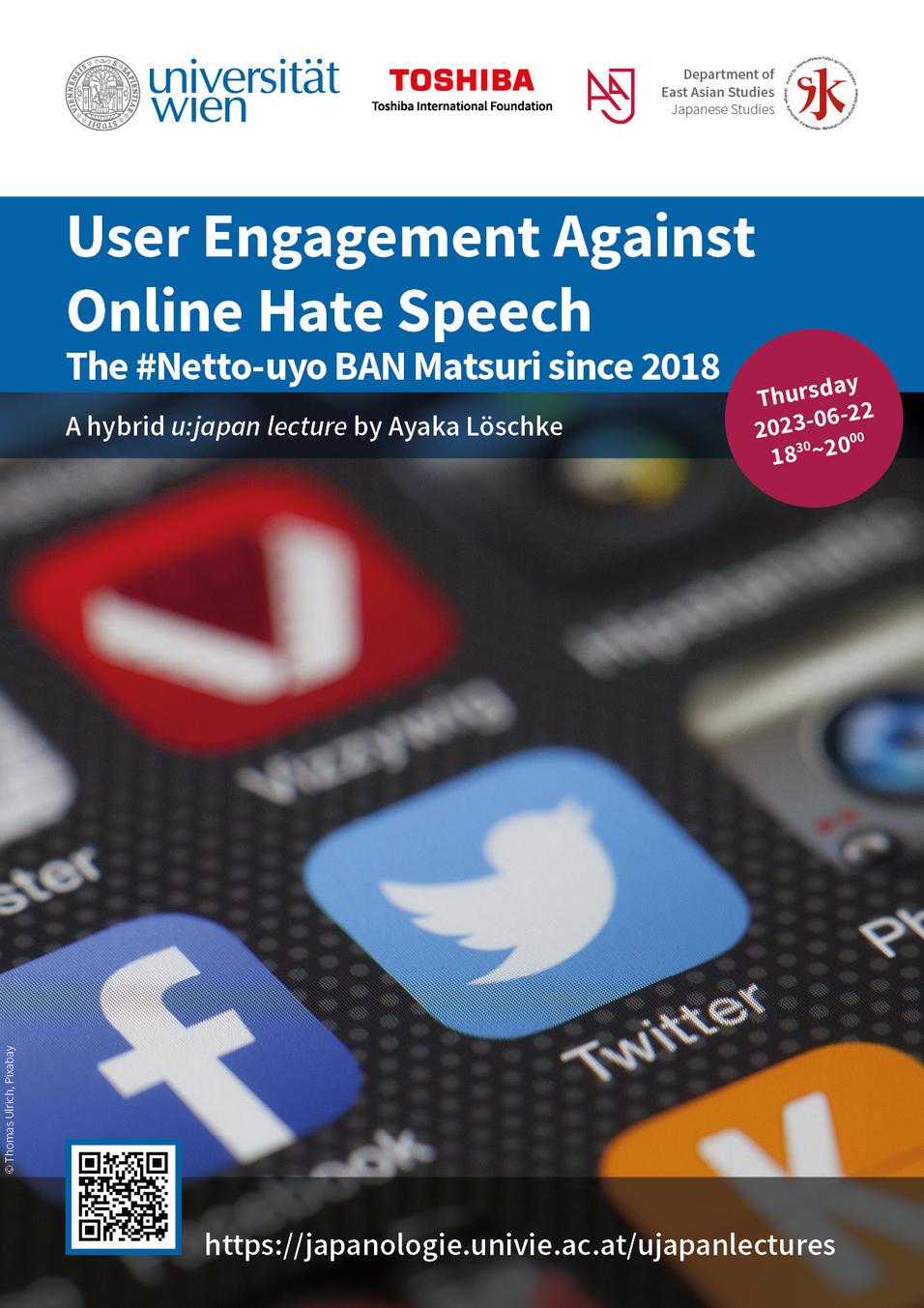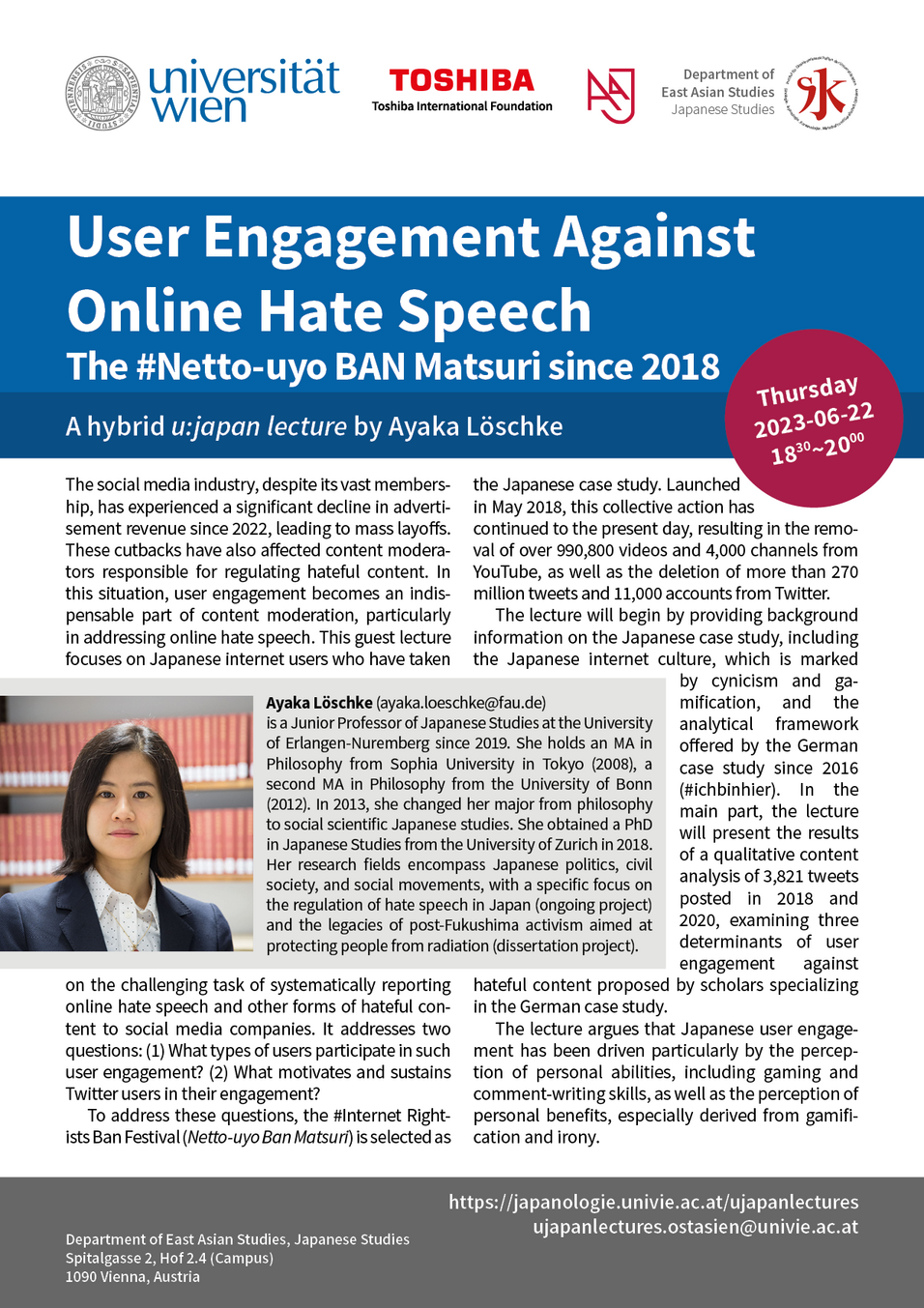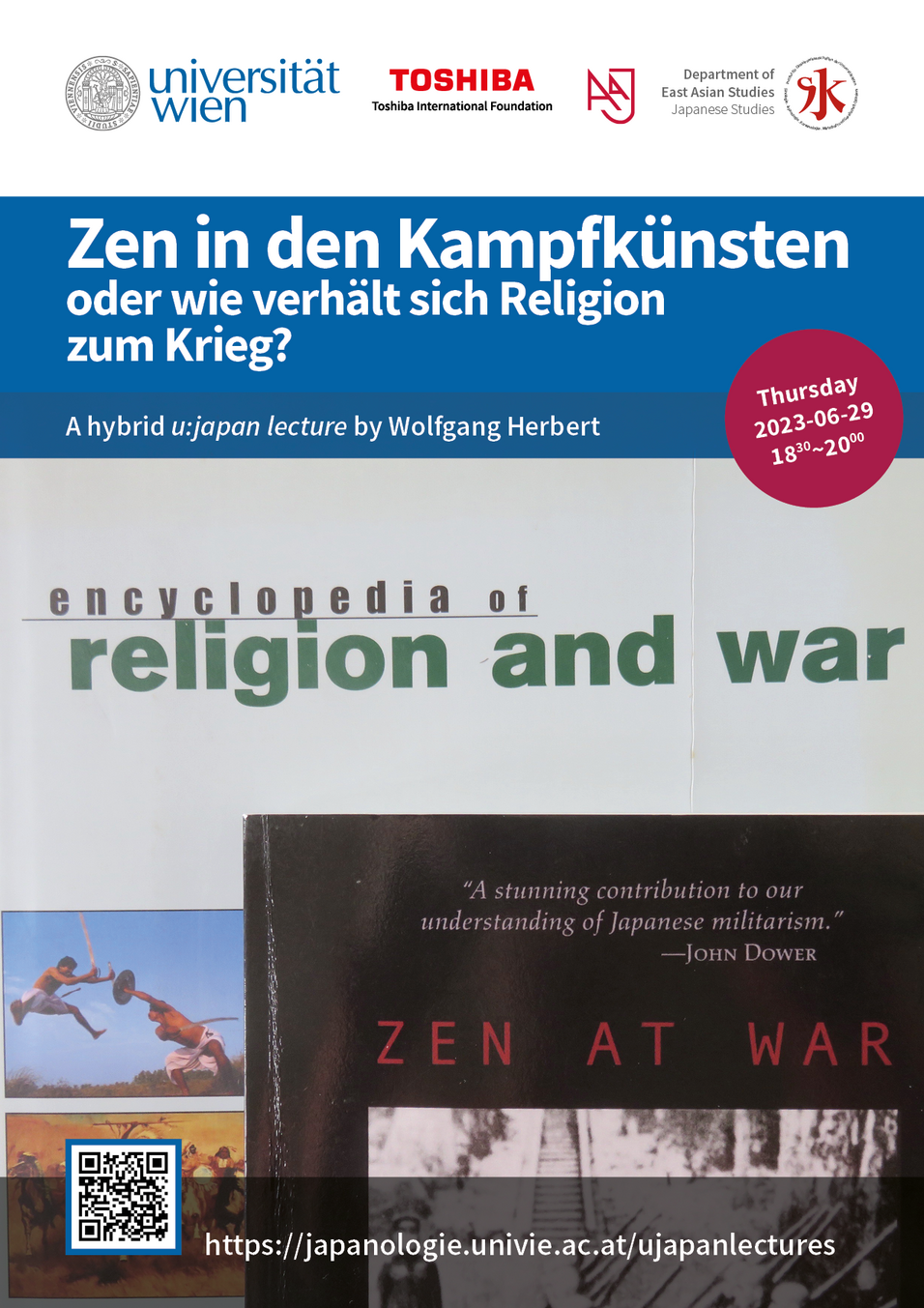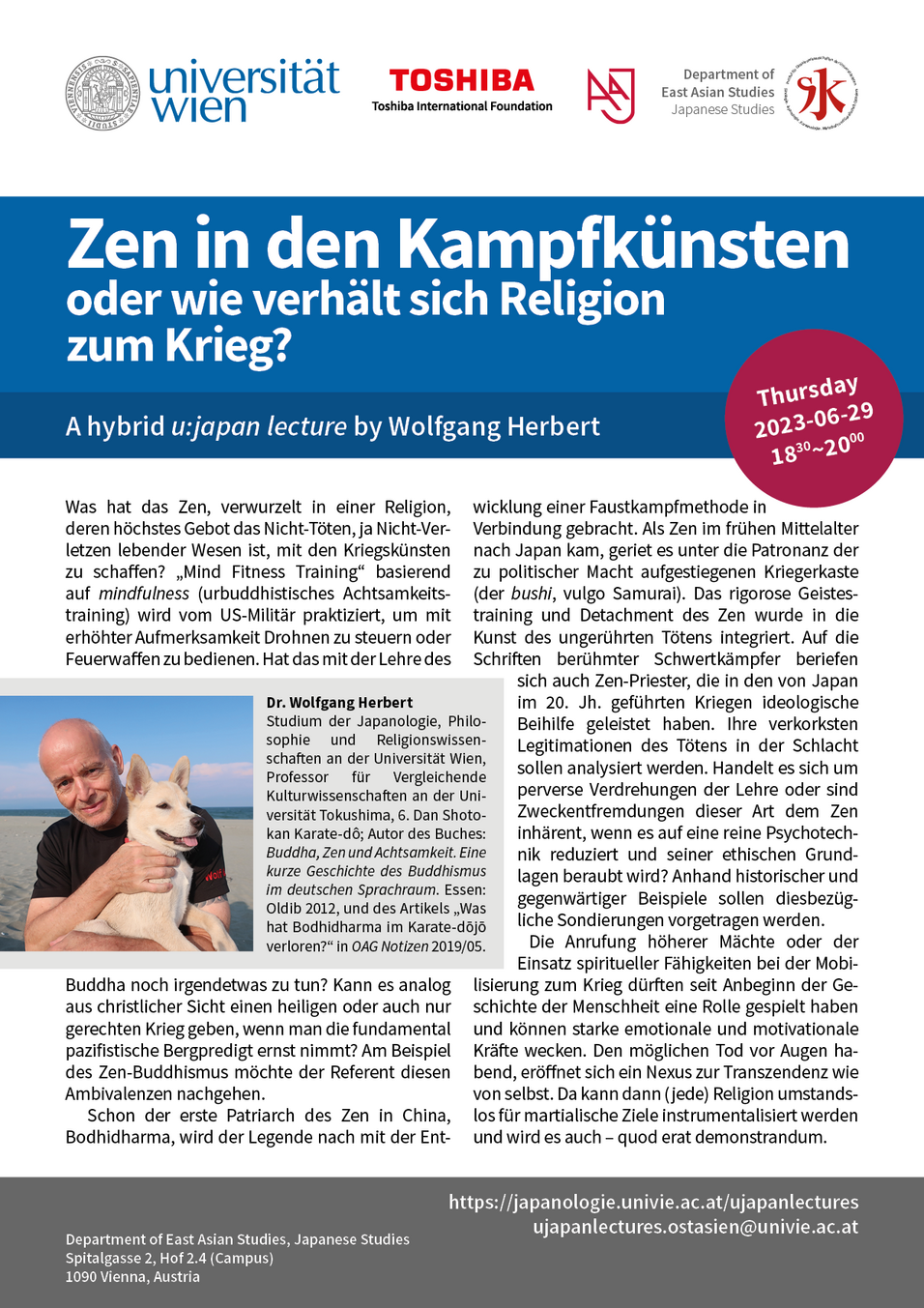15.06.2023 18:30 - 20:00
| Prolog |
S.E. MIZUUCHI Ryuta, außerordentlicher und bevollmächtigter Botschafter von Japan in Österreich wird zunächst einen kurzen Überblick über den Hintergrund der Judenpolitik der japanischen Regierung vor dem zweiten Weltkrieg und die Fakten zur Rolle Higuchi Kiichiros geben, bevor es zum Vortrag von Prof. Higuchi übergeht.
| Abstract |
Am 11. Oktober 2022 wurde eine Statue meines Großvaters Kiichiro Higuchi im Izanagi Schrein (伊弉諾神宮) auf der Insel Awajishima (淡路島) enthüllt. In jüngster Zeit wird er in Japan als Retter der jüdischen Flüchtlinge in der Mandschurei vor dem letzten Krieg und als Verteidiger von Hokkaido gegen die ungerechtfertigte Invasion der Sowjetischen Armee nach dem Kriegsende 1945 verehrt.
Kiichiro Higuchi wurde 1888 auf der Insel Awajishima geboren. Nach den beiden Kriegen gegen China (1894-96) und Russland (1904-05) entschied er sich spontan, eine militärische Laufbahn einzuschlagen. Nach dem Abschluss der Kriegsschule und Militärakademie wurde er zum Offizier für Nachrichtenwesen. Im Zuge der Sibirischen Intervention (1918-22) wurde er nach Wladiwostok entsandt und wohnte bei einer jüdischen Familie, durch die er die tragische Geschichte der Juden kennenlernte. 1925-28 war er als Militärattaché in Warschau tätig, wo er seine Kenntnisse nicht nur über die politische Lage innerhalb Europas, sondern auch die damalige Situation der jüdischen Bevölkerung vertiefte.
1937 entsandte ihn der Generalstab für kurze Zeit nach Berlin, um die Politik des Dritten Reichs kritisch zu untersuchen. Infolge des Ausbruchs des japanisch-chinesischen Krieges wurde er nach Tokio abberufen und anschließend als Leiter der “Spezialeinheiten” (Anm: des Nachrichtendienstes) nach Harbin in der damaligen Mandschurei geschickt, das als Zentrum der jüdischen Gemeinde im Fernen Osten galt. Es war vermutlich die Freundschaft mit deren Vorsitzenden, Dr. Abraham Kaufman, die ihn veranlasste, in Folge eine judenfreundliche Politik vorerst in der Mandschurei und dann innerhalb der japanischen Regierung zu etablieren. Einem heftigen Protest Deutschlands gegen das japanische Außenministerium und den Generalstab wegen seiner pro-jüdischen Ansprache beim ersten jüdischen Kongress im Fernen Osten 1937 folgte seine Abberufung nach Tokio, wo er zum Leiter der 2. Sektion des Generalstabs befördert wurde. In dieser Funktion gelang es ihm im Hintergrund, den “Fünf-Minister-Beschluss“, Grundprinzipien der damaligen Judenpolitik Japans, Ende 1938 unter dem Heeresminister Seishiro Itagaki zugunsten der Juden zu verfassen und infolgedessen mehreren tausenden aus dem Dritten Reich fliehenden jüdischen Flüchtlingen den Weg in die Freiheit zu verschaffen. Prof. Meron Medzini der Hebrew Universität schreibt in seinem Buch, „Under the Shadow of the Rising Sun. Japan and the Jews during the Holocaust Era”, Boston 2016: “ in the empire the Japanese created beginning in 1931 (Anm: Kaiserreich Mandschukuo), numbering a total of some thirty-five to forty thousand Jews who were lucky compared to their brethren who were extermised in Europe”.
| Bio |
Prof. Dr. Ryuichi HIGUCHI
Higuchi Ryuichi (geb. 1946) ist ein renommierter Bach-Forscher und Dirigent in Japan und aktuell Professor Emeritus für Musikwissenschaft an der Meiji Gakuin Universität. Er ist auch bekannt als Enkel von Generalleutnant Kiichiro Higuchi, der sich für den freizügigen Transit jüdischer Flüchtlinge in Ostasien 1937-1941, einschließlich nach Mandschukuo, einsetzte. Sein Großvater gilt als Verteidiger von Hokkaido gegen die russische Aggression unter Stalin nach der Akzeptanz der Potsdamer Deklaration durch Japan im August 1945.
Ryuichi Higuchi studierte an der Keio Universität in Tokio und besuchte 1972 das Bach-Archiv Leipzig, wo er die Grundlage für seine Bachforschung bei Werner Neumann schuf. 1974-79 studierte er als Stipendiat des DAADs bei Georg von Dadelsen in Tübingen und edierte im Rahmen seiner Dissertation sieben Kirchenkantaten J. S. Bachs (Neue Bach-Ausgabe I-34). Das Dirigieren erlernte er bei Alexander Sumski und wurde Chorleiter an der Marienkirche in Stuttgart. Seit seiner Rückkehr nach Japan ist er vielseitig tätig als Musikwissenschaftler, Dirigent und Kritiker für die Bach-Forschung in Japan. Im Jahr 2000 begründete er unter der Schirmherrschaft Helmut Rillings die Konzert-Vereinigung "Bach Akademie Meiji Gakuin Tokyo" mit eigenem Chor und Orchester auf Originalinstrumenten. In seiner Funktion als künstlerischer Leiter gab er viele Konzerte und verantwortete deren CD- Aufnahmen.
Von 1985-1992 war er Generalsekretär der Alban Berg Gesellschaft Japan und seit 2022 ist er als deren Präsident tätig. 1998 war er Gastforscher des Musikwissenschaftlichen Instituts der Universität Wien und hielt u.a. den Vortrag „Die Japanischen Blätter Op.15 – Gottfried von Einems Beschäftigung mit Japan“ im Rahmen des Internationalen Einem-Kongresses der Gesellschaft der Musikfreunde in Wien. 2006 war er Gastforscher des Arnold Schönberg Centers Wien. 2012-17 war er als Vizepräsident der Internationalen Gesellschaft der Musikforschung, mit Sitz in Basel, tätig und realisierte deren Weltkongress 2017 in Tokio. 2015 wurde ihm vom Deutschen Akademischen Austauschdienst der Theodor-Berchem-Preis verliehen. Im Jahr 1988 erhielt er den Kioto-Musikpreis und wurde 2002 mit dem Österreichischen Ehrenkreuz für Kunst und Wissenschaft ausgezeichnet.
Nachdem er 2018 Gastvorträge über seinen Großvater in Jerusalem und Tel Aviv auf Einladung der dortigen Japanischen Botschaft gehalten hatte, wurde er wiederholt zu Vorträgen in verschiedenen Städten Japans eingeladen. Außerdem publizierte er die beiden Bücher Kiichiro Higuchis Nachlässe – ein General, der die jüdischen Flüchtlinge und Hokkaido rettete (陸軍中将樋口季一郎の遺訓 ユダヤ難民と北海道を救った将軍), 532 Seiten, Bensei Shuppan, 2020 und Kiichiro Higuchis Memoir(陸軍中将樋口季一郎回想録), revidierte Neuausgabe, Japanisch, 723 Seiten, Keibunsha Shobo, 2022.
| Date & Time |
u:japan lecture | s06e12
Thursday 2023-06-15, 18:30~20:00
max. 50 participants (on site) + max. 300 participants (online)
| Place & Preparations |
| Plattform & Link |
| Further Questions? |
Please contact ujapanlectures.ostasien@univie.ac.at or visit https://japanologie.univie.ac.at/ujapanlectures/s06/#e12.


